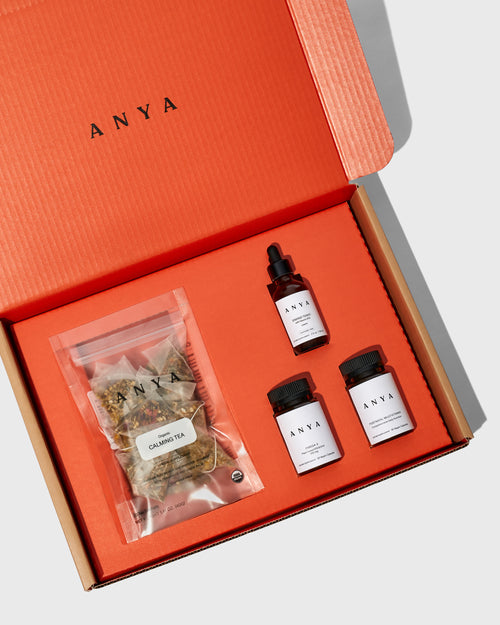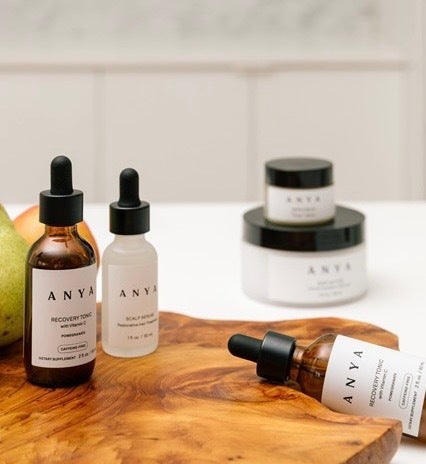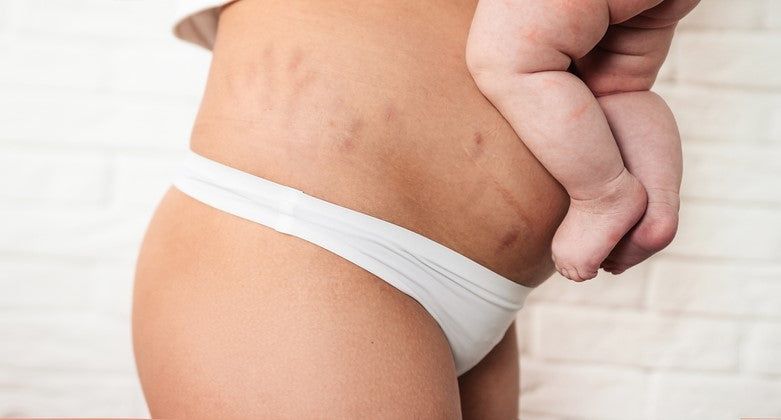1. That nutrition is just as important after birth as it during pregnancy
Postpartum, your body requires higher levels of 15 key nutrients versus during pregnancy due to the increased demands of postpartum recovery and lactation. Your mood, energy levels & brain function all take a hit postpartum as a result of hormone fluctuations, sleep deprivation & elevated stress. Yes, mental health is impacted by nutrition too. We’re only just beginning to understand the ways mothers’ brains change throughout the first postpartum year, but suffice it to say: Mommy brain is real, and it’s an amazing time of neurogenesis and neuroplasticity as gray matter changes wire us up to care for our children long term.
That takes fuel.
Continuing with your prenatal vitamins isn’t the optimal course of action since it won’t give you enough of what you need, and in some cases (like iron) prenatals typically contain too much and can cause digestive issues and constipation. This Postnatal Multivitamin + Omega 3, created with an OB-GYN and registered dietitian, is formulated with only clean and high quality ingredients.

Shop Now
2. Your hormones will go through the greatest change in the shortest period of time–in your life– which can cause things like vaginal dryness, hair loss, dry skin & more.
One of the hormonal changes that wreaks the most havoc for new moms is the major drop in estrogen that occurs immediately after birth, and remains at low levels for the first few months postpartum and longer if a mother is breastfeeding. It can contribute to brain fog, dry flaky skin, vaginal dryness and postpartum hair loss.
So, what can you do to address some of these side effects? Give yourself time to recover and arm yourself with effective products to treat the symptoms. A few of our OB-GYN approved recommendations:
- Scalp Serum: For the not-so-fun & demoralizing postpartum hair loss that happens to around 50% of moms. Most hair growth products on the market contain minoxidil or other harmful ingredients that aren’t considered safe to use while breastfeeding. This serum is tested for breastfeeding safety, is dermatologist tested and toxicologist approved as well as free of minoxidil, parabens and phthalates. Check out the results here.

Shop Now
- Body Butter: A double acting, clean ingredient body butter + stretch mark repair cream designed specifically to treat dry postpartum skin & stretched out skin. It’s dermatologist-tested and toxicologist approved, so you know it has only the good stuff.

Shop Now
- Lubricant and vaginal moisturizers: Personal lubricants are intended for use during vaginal penetration and masturbation, think of it as an “in-the-moment” moisturizer. Vulvo-vaginal moisturizers are different from personal lubricants, more of a maintenance therapy you can use two or three times a week to help with dryness. These moisturizers come in cream and gel forms, as well as moisture-rich, hyaluronic-acid-based inserts. Coconut oil is a safe and natural vaginal moisturizer, and Vitamin E suppositories inserted vaginally can provide relief from dryness (and also help with postpartum constipation). A topical estrogen cream, often used to ease menopausal symptoms, including vaginal dryness and dyspareunia (the medical term for painful intercourse), may also be prescribed for postpartum dryness.
3. Seek Pelvic Floor Support
Regardless of type of delivery (vaginal or caesarian), pregnancy and birth impacts your pelvic floor. Whether you are looking to regain strength and build a safe and effective workout routine during pregnancy and postpartum or treat specific issues, proper training including strengthening and releasing of the pelvic floor is critical in the first year postpartum. For new moms, pelvic floor issues during pregnancy, birth and postpartum can lead to back pain, hip pain, pain during sex, leakage and more. To avoid long term impacts and alleviate symptoms, proper recovery and healing is reliant on what you do in those early months postpartum.
Dr. Mae Hughes, mother and Doctor of Physical Therapy has built her practice around empowering expecting and new mothers to feel strong, confident and capable in their pregnancy and postpartum journey – and to find relief for pelvic floor dysfunction with prevention methods and courses. What we love about Dr Mae’s postpartum recovery course is that it’s approachable, easy to incorporate from home and loved by thousands of moms.

Explore Movement Through Motherhood Courses






